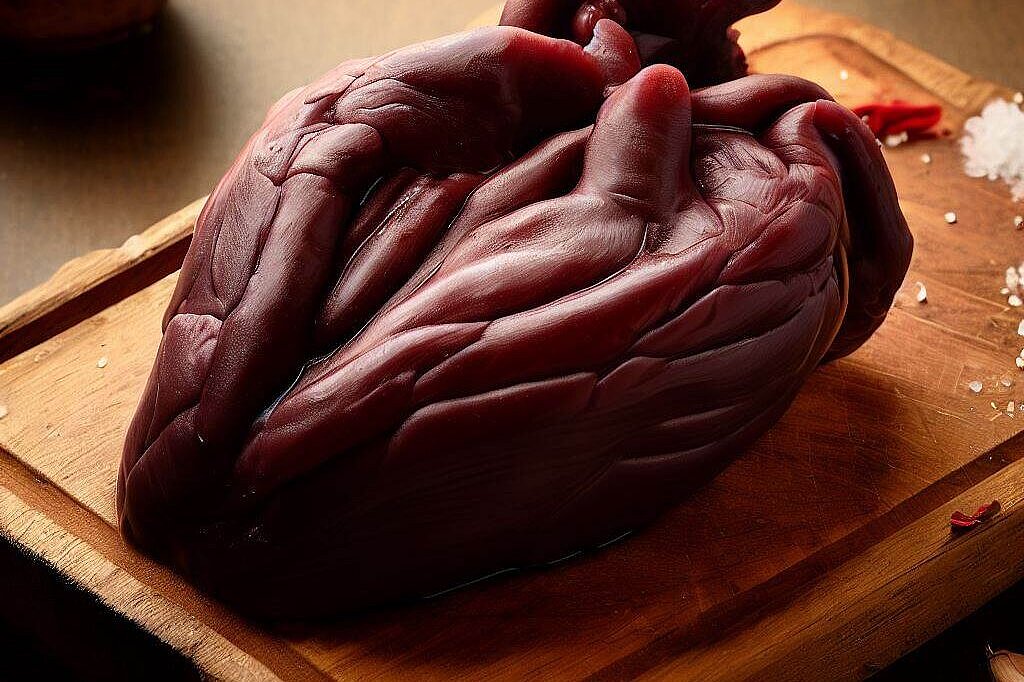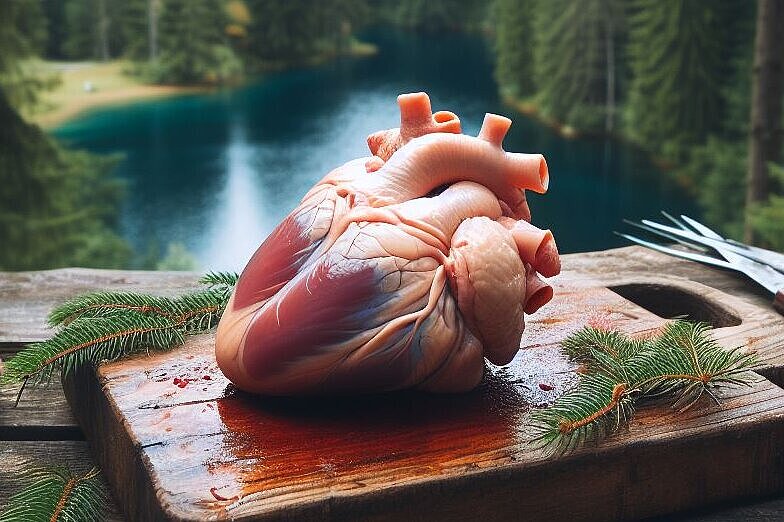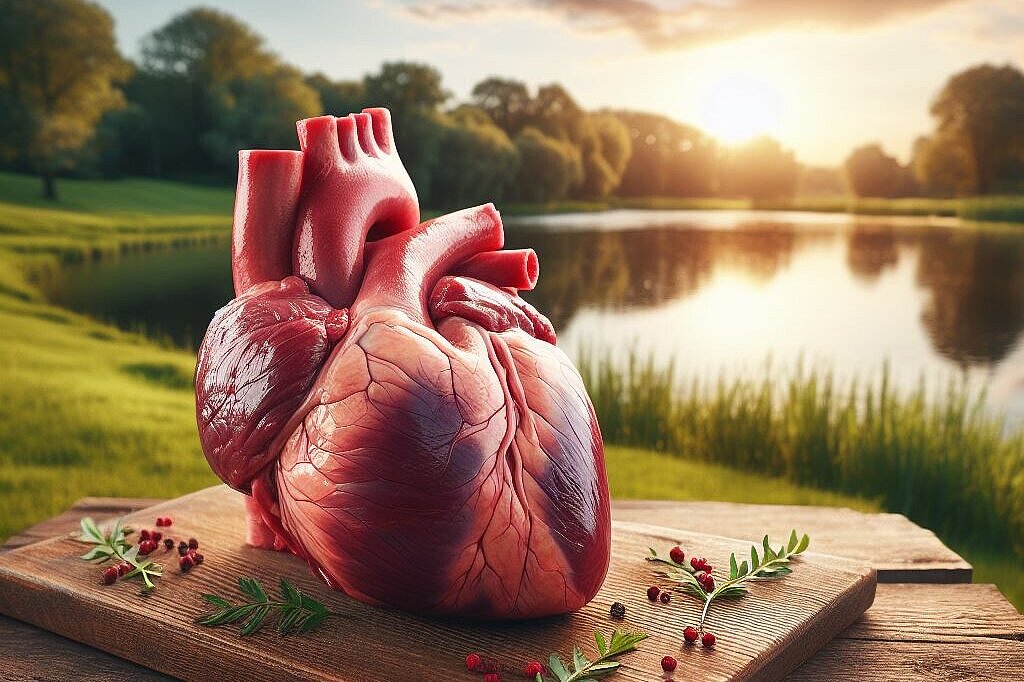Chicken heart hydrolyzate

What is chicken heart hydrolyzate?
Chicken heart hydrolyzate is a product obtained from chicken hearts. Chicken hearts are rich in collagen, a structural protein that is responsible for the strength and elasticity of connective tissue. However, collagen is not soluble and must therefore be broken down by hydrolysis. Hydrolysis means that a molecule is broken down into smaller parts by reacting with water. This produces collagen hydrolysates, which consist of short-chain collagen peptides. These are water-soluble and can be better absorbed by the body.
How is chicken heart hydrolyzate produced?
Chicken heart hydrolyzate is mainly produced enzymatically. This means that special enzymes are used to accelerate and control hydrolysis. The enzymes break down the collagen in the chicken hearts into smaller peptides, which are then purified, concentrated, sterilized, dried and ground. The result is a fine powder called chicken heart hydrolysate.
What are the benefits of chicken heart hydrolyzate for dogs?
Chicken heart hydrolyzate has several benefits for dogs. Firstly, it is a high-quality source of protein that provides dogs with essential amino acids. Secondly, it can promote joint health by stimulating cartilage cells to produce more cartilage tissue. This can be helpful for dogs with osteoarthritis or other joint problems. Chicken heart hydrolysate can also improve skin and coat health by maintaining moisture in the skin and increasing the shine of the coat.
What are the disadvantages of chicken heart hydrolyzate for dogs?
Chicken heart hydrolysate also has some disadvantages for dogs. For one thing, it can cause digestive problems such as flatulence or diarrhea in some dogs. This is because the collagen peptides are absorbed very quickly and can irritate the intestines. On the other hand, some dogs may experience allergic reactions such as itching or skin rashes. This is due to the fact that some dogs are sensitized to certain components of chicken heart hydrolysate.
How can chicken heart hydrolyzate be fed to dogs?
Chicken heart hydrolyzate can be used as an ingredient in dog food or dog snacks. However, attention must be paid to quality and quantity. Not all products contain pure chicken heart hydrolyzate, but also other additives that can be harmful to dogs. In addition, not too much chicken heart hydrolyzate should be fed to avoid digestive problems or an overdose. The recommended daily dose is around 10 grams per 10 kilograms of the dog's body weight.
If you notice any signs of hypersensitivity or poisoning in your dog, you should see your vet immediately. We are not a substitute for a vet, but we try to be as accurate as possible. Every dog reacts differently and we recommend you get a second opinion or consult your vet if in doubt.
Stay healthy and take good care of your four-legged friend!😊
Similar to Chicken heart hydrolyzate
Buffalo heart is a muscular organ that pumps blood through the buffalo's body. It is dark red in color and has a firm consistency. Buffalo heart is part of the so-called rumen, also known as green...
Calf hearts are the hearts of young cattle that are usually slaughtered between six and twelve months old. They belong to the so-called offal or by-products that are produced during meat processing....
Chicken hearts are the muscles that pump blood through the poultry's body. They belong to the so-called offal or by-products and are often referred to as offal. However, this does not mean that they...
Beef hearts are, as the name suggests, the hearts of cattle. They belong to the so-called offal or organ meat, which is often regarded as a by-product of the meat industry. However, they are a...



